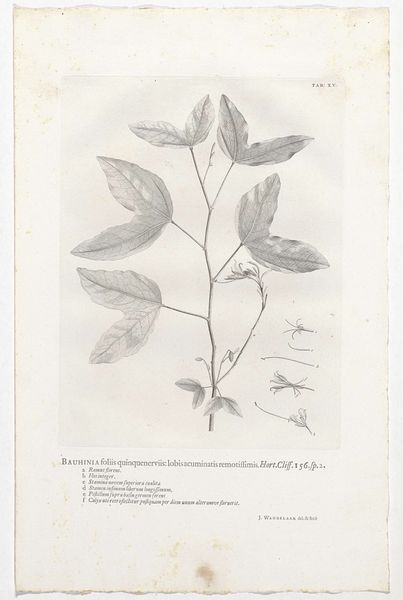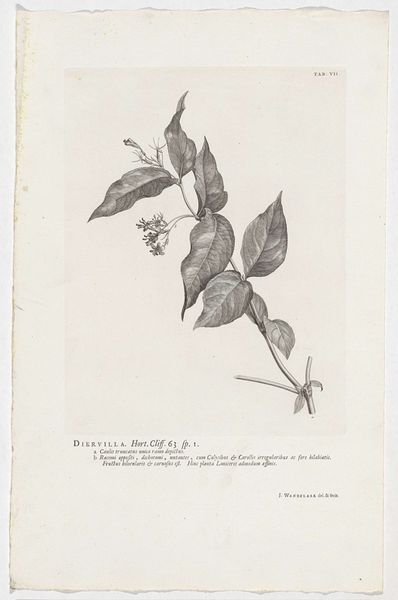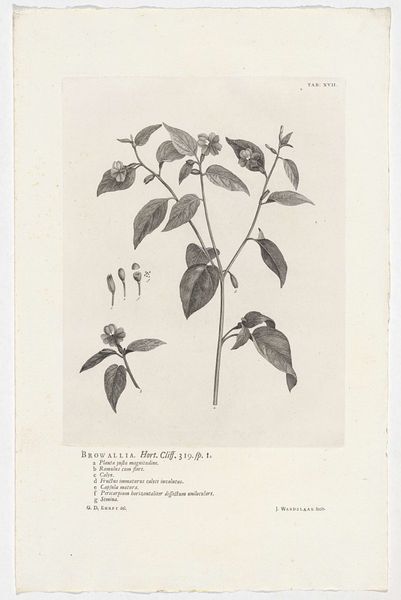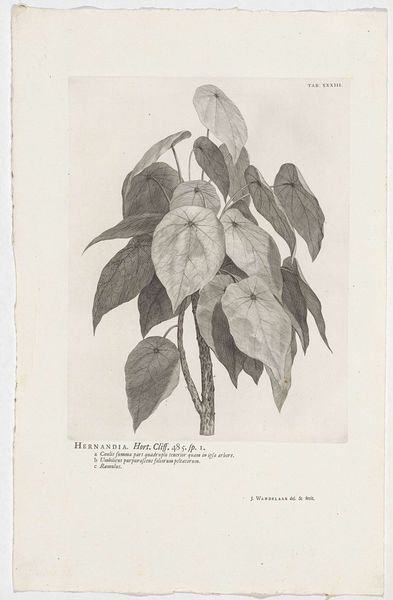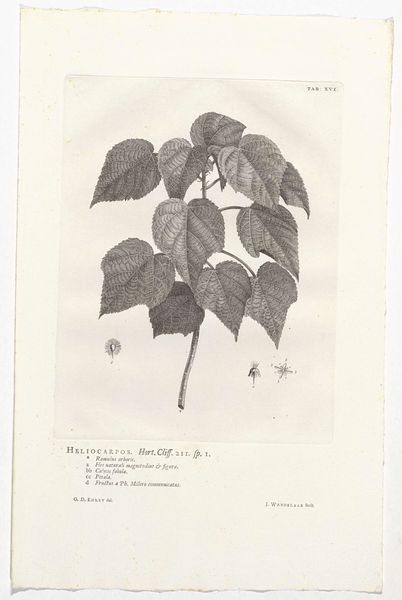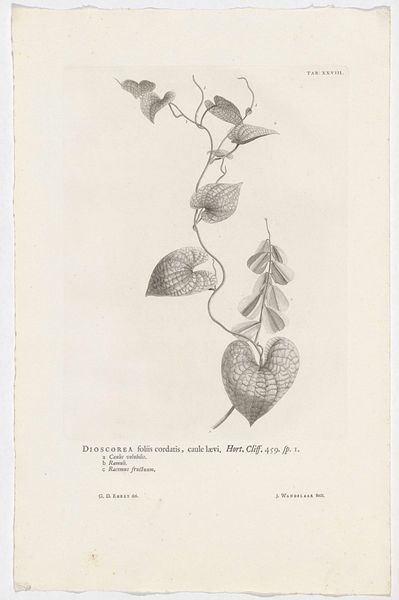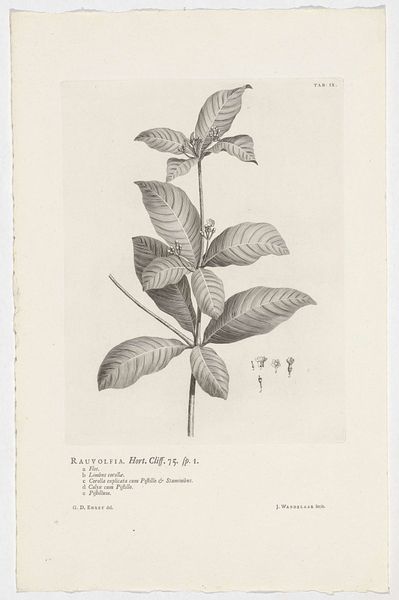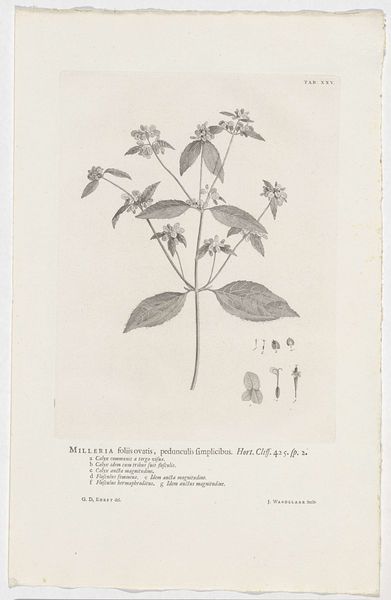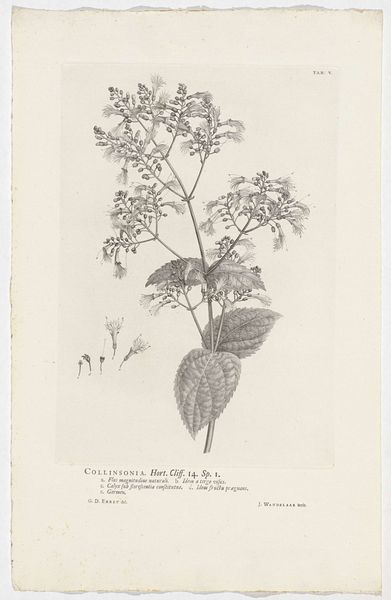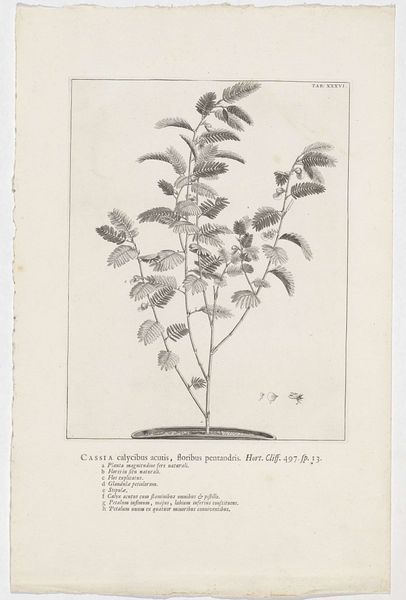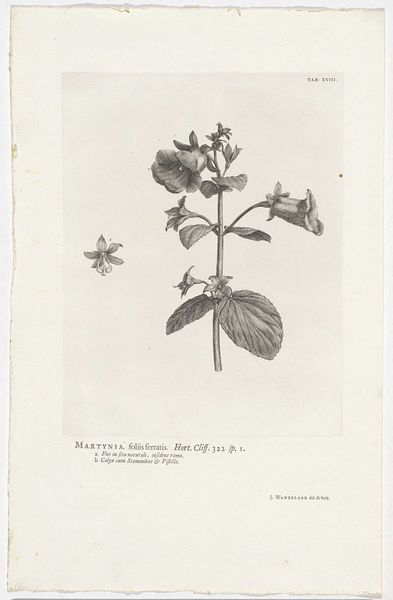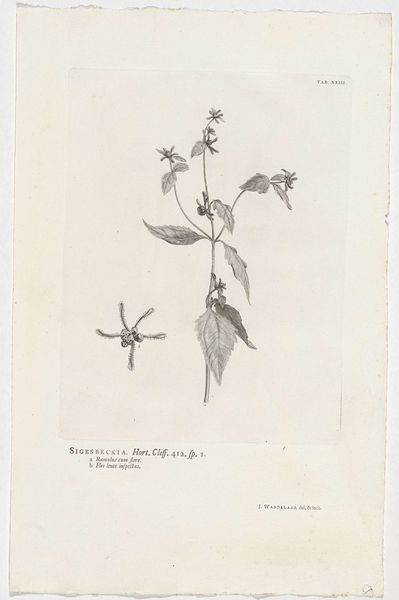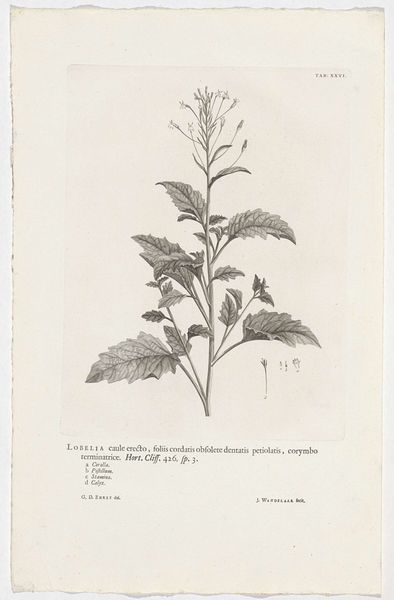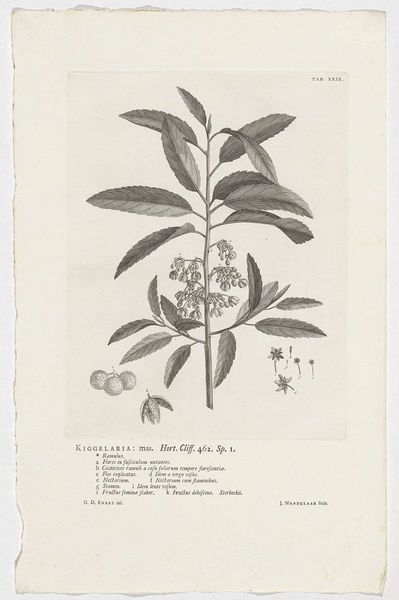
drawing, print, engraving
#
drawing
#
dutch-golden-age
# print
#
line
#
academic-art
#
engraving
#
monochrome
Dimensions: height 291 mm, width 223 mm
Copyright: Rijks Museum: Open Domain
This is a botanical print of Bauhinia aculeata, made by Jan Wandelaar, likely in the first half of the 18th century. It's an etching, a printmaking process that involves biting lines into a metal plate with acid, inking the plate, and then using a press to transfer the image to paper. The image’s success depends on the way the incised lines can create a detailed description of the plant. Look closely, and you can see how Wandelaar has varied the weight and density of the lines to create a sense of volume and texture. The leaves are delicately shaded, giving them a soft, velvety appearance. The thorns along the stem are rendered with sharp, precise lines, contrasting with the gentle curves of the leaves. This wasn’t just a technical exercise, but a commercial one. Prints like this were used to illustrate scientific texts, and their accuracy was essential. At the same time, the artistry of the printmaker was also valued, and Wandelaar was known for his skill in capturing the beauty and detail of the natural world. This print reminds us that even in the age of mechanical reproduction, the hand of the artist is always present.
Comments
No comments
Be the first to comment and join the conversation on the ultimate creative platform.
